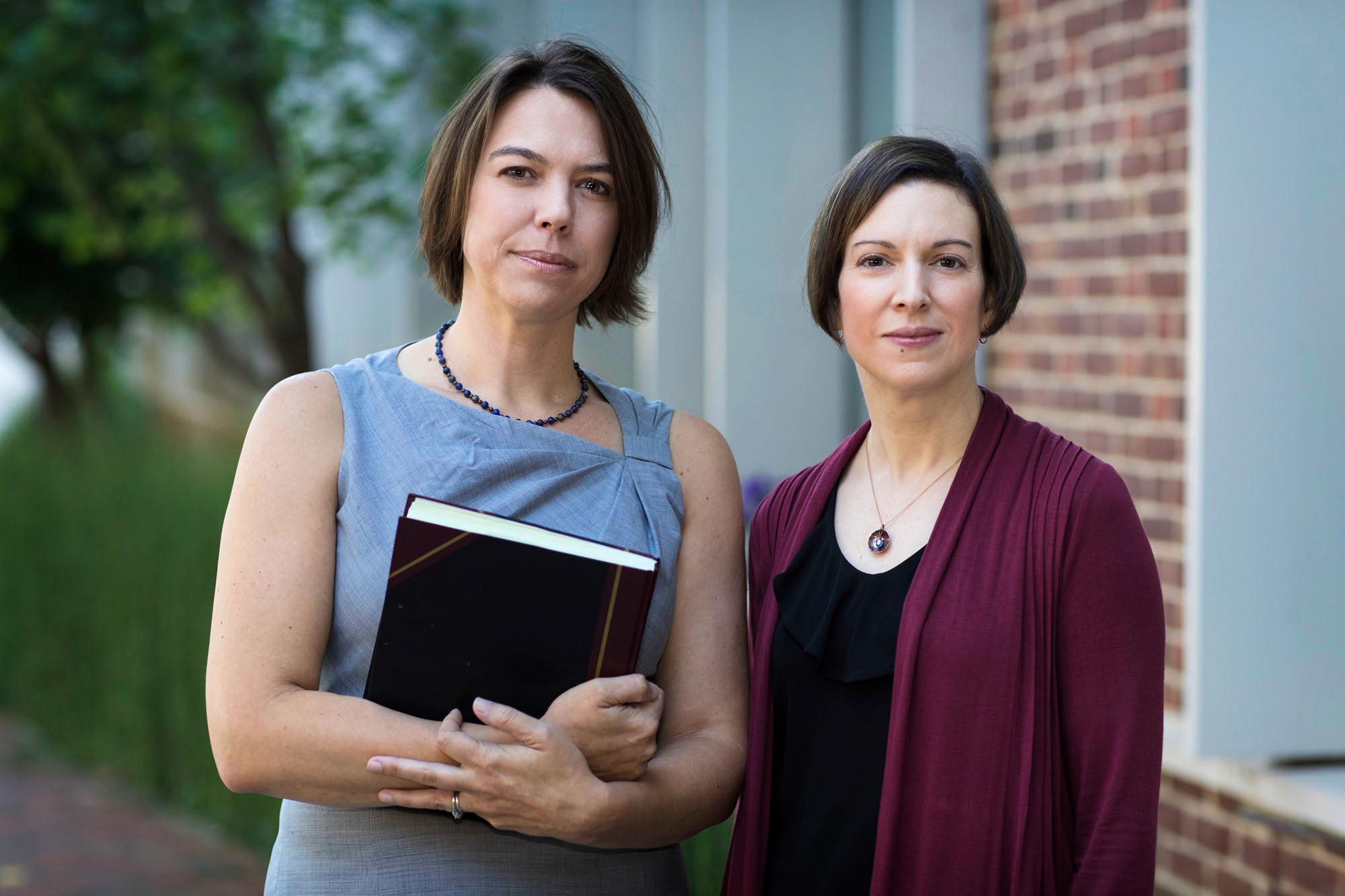Outbreaks of serious infectious diseases – Ebola, Zika, and others – are on the rise in large regions of the world, and can rapidly spread across the globe. Antibiotic-resistant pathogens, the so-called “superbugs,” are evolving faster than researchers can develop drugs to stop them. And diarrheal diseases, such as cholera, still sicken millions of people and kill hundreds of thousands of children in developing nations.
There are no simple solutions to these global problems; answers will likely come only through the efforts of innovative thinkers working together from diverse viewpoints and disciplines. The University of Virginia is now taking exactly that approach to solving health threats through its recently established Global Infectious Diseases Institute.
“We need concerted responses to handling notorious and urgent global infectious diseases,” said UVA microbiology professor Alison Criss, founding director of the new institute. “Because of the complexity of the problem, which crosses international boundaries and academic disciplines, we need to collaborate by bringing together the creative minds of a range of experts.”
More than 100 UVA faculty members from eight schools at the University have signed on, Criss said, including scientists, engineers, architects, medical practitioners, economists, social scientists and legal, educational and public policy professionals and scholars. They have begun working together, along with postdoctoral fellows and students, to take multi-pronged approaches to addressing and solving some of the biggest disease challenges of the 21st century.
Director, Global Infectious Diseases Institute
Established in May, the Global Infectious Diseases Institute is working with $2 million in University-provided seed funding to kick-start collaborative investigations that could lead to major grants from funding agencies.
The institute is one of four created at the University in the last few years to address major societal challenges. The others are the Data Science Institute, the UVA Brain Institute and the Environmental Resilience Institute.
During more than two years of planning, Criss and associate director Linda Columbus have identified several primary objectives for the Global Infectious Diseases Institute. They will encourage and help facilitate new trans-disciplinary scholarly activity across Grounds in global infectious diseases research and scholarship. They intend to further develop partnerships with public and private entities, focusing on the potential of institute researchers to win large, competitive external funding. The institute also will help facilitate the education and training of the next generation of laboratory and medical researchers, entrepreneurs, educators and policymakers. And the institute will expand already established UVA international collaborations.
“We’ve got momentum and inspired scientists and scholars on board, and we will build on that,” Criss said. “The great thing about UVA is the spirit of collaboration and sharing. People really are motivated to understand each others’ work and face big-problem challenges together.”
Initially the institute will focus on three of the most serious and pressing infectious disease issues facing the world: outbreaks with pandemic potential, such as Ebola and species-leaping influenza; diarrheal diseases affecting children; and antimicrobial, drug-resistant pathogens.
Director, Global Infectious Diseases Institute
“The University already has several internationally renowned researchers who are conducting investigations in these areas,” Criss said. “We can leverage these strengths and build on them.”
One example, she said, is UVA’s long-established Center for Global Health, which has active collaborative research and intervention programs – in Brazil, South Africa and elsewhere – centered on reducing gut infections in areas with poor-quality drinking water.
Moreover, researchers in the School of Medicine, College of Arts & Sciences and School of Engineering and Applied Science are already conducting studies into emerging diseases with pandemic potential, seeking new therapies and methods for treating drug-resistant microbes, and understanding how changes in the gut microbiome affect susceptibility to diarrheal diseases.
In a complementary manner, faculty in several schools across Grounds, including the School of Nursing and Batten School of Leadership and Public Policy, are actively investigating the impact of global health diseases within local populations and across international boundaries.
“The rise of global infectious diseases is not just a challenge for lab scientists, doctors and caregivers. It’s a societal challenge, larger than science alone, requiring the talents of social scientists, policymakers, anthropologists, bioethicists and other experts,” Columbus said. “With globalization, we need to engage on many levels, crossing boundaries with the intent to embrace the human aspect of infectious disease.”
“Funding opportunities increasingly are centered on multi-disciplinary, multi-investigator big-picture, big-problem projects,” Criss said. “We are geared with this institute to provide ‘grand challenge’ seed grants to UVA teams that can generate preliminary data with the potential to be highly competitive for winning major grants.”
The institute also will provide seed funding for multi-disciplinary “think tank” teams to draft impactful white papers on global infectious disease topics. Additionally, Criss said, the institute will fund an international scholar exchange, allowing mini-sabbaticals for UVA faculty and their research partners in other countries designed to inspire and strengthen collaborative research internationally. And the institute will work to train a new generation of global infectious disease researchers and scholars in new multidisciplinary approaches to problem-solving.
Director, Global Infectious Diseases Institute
“We will further build our community by hosting an annual retreat and an annual symposium, and will hold frequent thematic lunches to help nucleate these collaborations,” Criss said. “And we are sharing ideas with the University’s other institutes, such as looking at how climate change may affect the spread of disease; how some infectious diseases affect the brain; and working with data scientists to make sense of large data sets.
“We’ve got the momentum at the University to move forward as a leader in solving the enormous challenges presented by global infectious diseases.”
Media Contact
Article Information
July 28, 2017
/content/new-uva-institute-takes-global-infections-labs-legislatures

